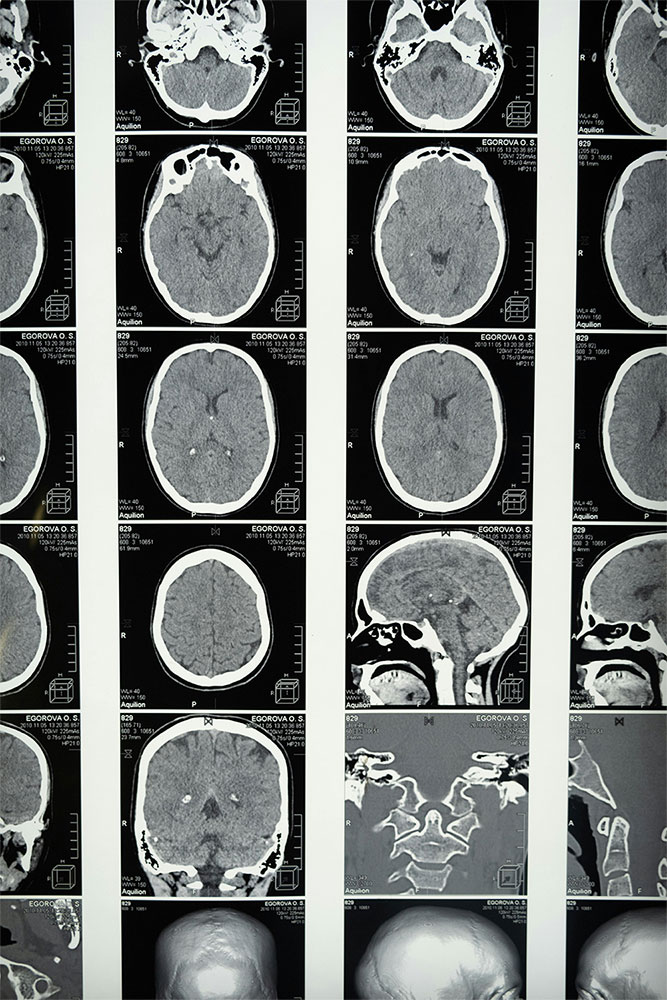
Christopher Ravn
Key Takeaways
1. Mild Cognitive Impairment is not typically recognized as a disability under legal frameworks like the ADA.
2. MCI reduces one's ability to live independently due to memory and cognitive challenges.
3. Strategies like organization, reminder apps, and social support can help mitigate the effects of MCI.
Table of Contents
1. Is Mild Cognitive Impairment Considered A Disability?
2. What Symptoms Qualify Mild Cognitive Impairment As A Disability?
3. List And Describe Common Cognitive Impairments
4. Can You Live A Normal Life With Mild Cognitive Impairment?
5. How Can A Disability With Cognitive Impairment Change Your Life?
6. Can You Live Independently With MCI?
7. How To Adjust Your Home Environment For Your Level Of Disability
8. Can You Still Work With Mild Cognitive Impairment?
9. Legal Working Rights And Protections For A Disability With Cognitive Impairment
10. Can A Person With Mild Cognitive Impairment Drive Safely?
11. Can You Get Disability Benefits For Cognitive Impairment
12. Applying For Social Security Disability
13. Understanding The Blue Book
14. Local Support Services On Disability With Cognitive Impairment
15. Frequently Asked Questions About 'is Mild Cognitive Impairment A Disability
Is Mild Cognitive Impairment Considered A Disability?
Mild cognitive impairment (MCI) occurs when a person experiences more memory and/or thinking problems than people of their age. Clinical symptoms include memory loss, language problems, attention deficits, disorientation, and changed visuospatial skills.
MCI onset more commonly occurs among those 65 or older but can affect anyone of any age. The danger of MCI lies in that it can develop into dementia if left untreated. MCI is a challenging condition, but there are strategies to help manage and potentially slow its progression.
In the United States, MCI is not typically recognized as a disability under legal frameworks such as the Americans with Disabilities Act (ADA). This is because MCI does not usually cause significant impairment in daily activities or substantial limitations in cognitive function.
However, individuals with MCI may qualify for disability benefits if their condition progresses to the point where it meets the criteria for disability, such as significant limitations in cognitive function that interfere with work or daily activities.
In medical frameworks, MCI is recognized as a clinical condition that requires monitoring and management to prevent or delay further cognitive decline.
Those living in the United States with MCI experience a significant impact on their lives, depending on the severity of the condition. Common symptoms include memory loss, difficulty executing complex tasks, and communication issues. As MCI progresses, the afflicted individual may require a caretaker to provide various levels of assistance with their daily activities.
In the United States, the Americans with Disabilities Act (ADA) and the Social Security Administration (SSA) provide the criteria for determining who is disabled. The ADA states that a person who is disabled is someone with a physical or mental impairment that substantially limits one or more major life activities – walking, seeing, hearing, speaking, breathing, learning, and performing manual tasks.
For the SSA, the determination of a person’s disability depends on the severity of the impairment, duration of impairment, and inability to work.
What Symptoms Qualify Mild Cognitive Impairment As A Disability?
Mild cognitive impairment (MCI) is a condition in which people experience more memory or thinking problems than others their age. These symptoms are not as severe as those of dementia or Alzheimer’s but are similar.
According to the US government, common symptoms of MCI include difficulty finding words, frequently losing items, and forgetting important events. These symptoms must occur more frequently than normal for a person of that age. Thus, it is important to work on brain exercises to prevent Alzheimer’s.
Compared to more severe disorders such as dementia, individuals with MCI can still function normally. The key difference between MCI and more severe disorders is daily functioning. For example, dementia encompasses memory loss, language difficulties, problem-solving issues, and other cognitive impairments severe enough to disrupt daily life. Those with dementia may experience symptoms similar to MCI but to a much greater degree. They may struggle with conversations, repeat themselves, become disoriented in familiar places, and experience hallucinations, delusions, and paranoia.
There is no single cause of MCI, but it is more likely to occur as someone ages. It is estimated that roughly 10% to 20% of people over age 65 have MCI, with the risk increasing with age. Other factors such as genetics and certain conditions — including diabetes, depression, and stroke — may also affect a person’s risk for MCI.
List And Describe Common Cognitive Impairments
There are numerous cognitive impairments that afflict a wide swath of society. Some of the more common and well-known ones include:
- Alzheimer’s disease: a brain disorder that slowly destroys memory and thinking skills, eventually affecting the ability to carry out even the simplest tasks. Hence, it is important to talk to someone with short-term memory loss.
- Attention deficit disorder (ADHD): a condition where individuals may have trouble paying attention, controlling impulsive behaviors, or being overly active.
- Dementia: a general term for the loss of memory, language, problem-solving, and other cognitive abilities severe enough to interfere with daily life.
- Early onset dementia: dementia that develops in people under the age of 65.
- Mild cognitive impairment: the subject of this article.
- Parkinson’s disease: a progressive disorder that affects the nervous system and parts of the body controlled by nerves. Individuals with Parkinson’s may experience depression, anxiety, hallucinations, memory problems, and dementia.
- Stroke-related cognitive dysfunction: cognitive impairment is a common consequence of a stroke, impacting quality of life. Approximately 30% of stroke patients develop dementia within 1 year of the stroke.
Can You Live A Normal Life With Mild Cognitive Impairment?
There are a variety of strategies employed by people with MCI, or their caregivers, to manage their symptoms.
One strategy is to manage a single task at a time and minimize distractions. For instance, turning off the television when attempting to concentrate on a task.
Reminder apps on the phone help tremendously by alerting the person with MCI about appointments, when to take medications and other tasks. Smartphone apps can also help with other tasks, to break down and compartmentalize more complex activities.
Proper organization is key to managing MCI. Allocate specific places for things such as keys and other items. It also helps to declutter the home as much as possible.
Place notes and reminders around the house where the MCI sufferer can see them. For instance, a note to remind them to close windows or turn something off.
These are simple strategies to help the person with MCI maintain their daily activities with minimal disruptions.
Social connections and participation are essential for individuals with MCI to prevent the progression of cognitive decline and enhance their overall well-being. Apart from friendship and human interaction, the idea is to develop a strong support network that will provide emotional support for comfort, reassurance, understanding, and practical assistance when needed. Such a support network will help the person with MCI better manage their condition and the challenges and changes that come with it.
Also, social interactions provide mental stimulation, important for maintaining cognitive function and overall well-being and warding off feelings of isolation.
How Can A Disability With Cognitive Impairment Change Your Life?
Cognitive impairment affects one’s life by reducing their capability to live independently. The person with cognitive impairment, whichever form it takes, has trouble remembering, learning new things, concentrating, or making decisions that affect their everyday life. They will eventually have to rely on other people for daily activities. Additionally, those with cognitive impairment are more likely to visit the hospital, making it a costly condition.
Can You Live Independently With MCI?
It is possible, as MCI is not as severe as dementia or Alzheimer’s. However, modifications to one’s lifestyle will need to be made to cope with the symptoms of MCI. A mental and physical exercise program will be necessary to slow the progression of the MCI and prevent it from developing into full-blown dementia.

How To Adjust Your Home Environment For Your Level Of Disability
For those with mild MCI, simple modifications such as decluttering living spaces, removing tripping hazards, improving lighting, and installing bathroom aids (grab bars, slip mats) can enhance safety and reduce the risk of falls. Monitoring systems such as video cameras or alarms are a costlier option but provide safety and peace of mind for caregivers.
If the MCI affects memory, it will probably be a good idea to start labeling drawers, cabinets, and other storage areas to show their contents and leaving reminder notices around for things like switching off lights and locking doors.
Can You Still Work With Mild Cognitive Impairment?
A supportive employer can undertake a series of accommodations and adjustments for an employee with MCI. These include providing written instructions and checklists to help with memory recall, breaking down complex tasks into smaller, more manageable steps, allowing extra time for completing tasks, using visual cues or color coding to aid in navigation, and ensuring that necessary tools and materials are easily accessible.
The company’s HR department can offer additional training or resources for their MCI-afflicted employees so that they may learn new skills or adapt to changes in their job responsibilities. They may even take it a step further and provide training for colleagues on how to work with the person.
Flexible work hours or remote work options can also be considered to accommodate fluctuating cognitive abilities.
We Believe Prioritizing Brain Health Enhances Your Quality Of Life
Get to know our team, our mission and how our EVY LIGHT® can provide you and your loved ones with a fuller life, letting you breathe a little easier.
Legal Working Rights And Protections For A Disability With Cognitive Impairment
The Americans with Disabilities Act (ADA) provides legal protections for employees with cognitive impairments, including Mild Cognitive Impairment (MCI). Under the ADA, individuals with disabilities are protected from discrimination in all aspects of employment, including hiring, firing, promotion, and job assignments.
Employers are required to provide reasonable accommodations to enable employees with disabilities to perform their job duties. For individuals with cognitive impairments, these accommodations may include modified work schedules, additional training, job restructuring, or the use of assistive technologies.
The ADA also prohibits employers from asking about an individual’s disability or requiring medical examinations unless it is job-related and necessary for the business. This protects employees’ privacy and prevents discrimination based on disability.
Can A Person With Mild Cognitive Impairment Drive Safely?
Since MCI affects memory and decision-making, it is generally not advisable to hand someone with MCI the keys to the car. However, since driving is such a crucial component of American life, it might be necessary for them to do so. Statistics show that 22–46% of patients with mild to moderate dementia still drive.
Assessing whether someone with MCI is fit to operate a vehicle is best left to a healthcare professional. The professional will perform a cognitive assessment, and a physical examination, to determine if the faculties are sufficient to operate a motor vehicle. A functional assessment is conducted to see if the person with MCI even remembers how to operate the vehicle.
People with MCI are at greater risk of accidents due to their impaired cognition. As such, it is inadvisable for someone with MCI to drive. The best guideline is for a person without cognitive impairment to accompany the driver.
Assessing a person’s safety to drive forms part of a broader clinical assessment that should be carried out when assessing someone with cognitive impairment or dementia. It is also important to assess their current driving habits, their functional ability, any clinical comorbidities, medications, and their cognitive function.

Enhance your brain performance through the power of light.
Comfortable and easy to use 40Hz light therapy to support and improve your brain function.
View Our LightCan You Get Disability Benefits For Cognitive Impairment
Individuals with MCI may be eligible for disability benefits in the United States if their condition meets the criteria outlined by the Social Security Administration (SSA). Qualification for Social Security Disability Insurance (SSDI) or Supplemental Security Income (SSI) benefits based on a cognitive impairment depends on whether individuals meet certain criteria in regard to:
- severity of impairment;
- duration of impairment; and
- inability to work.
Applying For Social Security Disability
Applying for disability benefits due to cognitive impairment in the United States involves several steps and requires specific documentation and evidence. Here is a guideline to the process: First, you need to fill out the application, then send in the medical evidence, and proceed to a functional assessment. Once that is done, you will need to provide your work history and supporting documentation. Then, you will need to follow up with appeals and seek legal assistance.
Understanding The Blue Book
The Social Security Administration’s Blue Book is a guide that outlines the criteria used to determine if an individual qualifies for disability benefits. For MCI, the Blue Book details specific criteria that must be met for an individual to be considered disabled under these conditions.
For cognitive disorders, including MCI, the Blue Book focuses on evaluating the individual’s ability to perform activities of daily living, maintain social functioning, and complete tasks in a timely manner due to cognitive deficits. To meet the criteria outlined in the Blue Book, an individual must demonstrate significant cognitive decline that impairs their ability to function independently.
In the case of MCI, the SSA will evaluate the severity of the cognitive impairment, the impact on daily activities and social functioning, and the expected duration of the impairment. Medical evidence, including cognitive testing results, treatment history, and documentation from healthcare providers, will be used to assess the individual’s eligibility for disability benefits.
It’s important to note that while the Blue Book provides guidelines, each case is evaluated on an individual basis, and meeting the criteria outlined in the Blue Book does not guarantee approval for disability benefits. The SSA considers all relevant evidence when making a determination about an individual’s eligibility for benefits.
Local Support Services On Disability With Cognitive Impairment
The first step is to research what local resources are available in that area. This can be done through the internet, or one may inquire at community centers, hospitals, Alzheimer’s Association chapters, and Area Agencies on Aging. Then it is a matter of contacting them and finding out what services they offer for the person with MCI.
This is largely dependent on the facilities the community offers. Each community is different and caters to those with MCI differently. Overall, the support network for those with cognitive issues, and access to trained professionals, would be stronger in urban areas.
Always come prepared with a list of questions to ask, such as what services are offered, how to apply, and whether there are any costs involved.
Note that some services may require completion of an intake process, which may include providing information about the medical condition, financial situation, and living arrangements of the person with MCI and perhaps even their caregiver. Be prepared to provide documentation, such as medical records and identification, to support the application.
Learn What Others Have Experienced with EVY Light
See how others have achieved a sharper mind by activating their gamma brainwaves in combination with maintaining a healthy lifestyle.





















































































